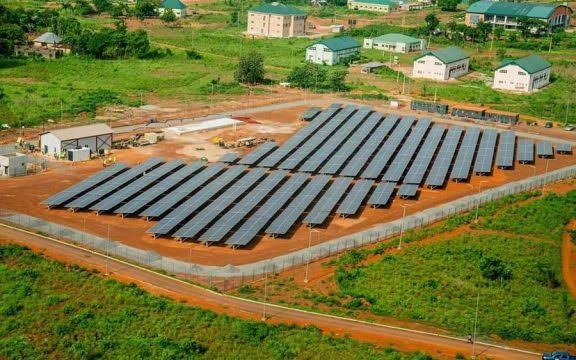 Plans are underway by four states in the NorthWest Zone of the country to encourage the development of alternative energies such as solar, wind, biomass, and hydro, to address the lingering epileptic electricity supply bedeviling the states.
Plans are underway by four states in the NorthWest Zone of the country to encourage the development of alternative energies such as solar, wind, biomass, and hydro, to address the lingering epileptic electricity supply bedeviling the states.
Ahmad Zailani and Ibrahim Ali, electronic experts in Jigawa, underscored the imperative of private sector investment, to encourage the development of independent power plants, especially in northern parts of Nigeria, endowed with abundant solar, wind, and biomass energy sources.
Zailani highlighted that Jigawa state has the potential to produce biofuel to fast-track implementation of its rural electrification programme.
He said biofuel could be sourced from sugar cane and Jatropha plants, which are largely produced in Jigawa.
This biofuel, he said, has the potential to produce quality fuel to power engines and machinery.
“Governments should encourage private sector participation, to bridge funding gaps, strengthen regulatory frameworks and institutions, to ensure effective oversight and investment in modern transmission and distribution infrastructure,” he said.
To achieve power self-sufficiency, the Gombe state government embarked on a 100MW solar energy plant project.
Ismaila Uba-Misilli, Director-General, Press Affairs, Government House Gombe, said the state government was utilising alternative power sources to ease dependence on the national grid and boost its revenue base.
According to Mr Uba-Misilli, the state government has signed a Memorandum of Understanding, MoU, with China 18th Engineering, for the development of the power plant.
“The 100MW plant is expected to create jobs, attract investment and provide stable power supply to industries and residents of the state.
“When this project comes to fruition, there will definitely be enhancement of many opportunities in terms of businesses, social and economic activities.
“With the 100MW and the Dadinkowa dam which is generating 40MW, Gombe state will become an energy hub.
“The state government is also working on the Balanga dam hydropower component, to generate power for irrigation farming across that axis,” he said, adding that the plant would supply electricity to consumers outside the state.
In the same vein, the Kano Electricity Distribution Company, KEDCO, announced a $100 million investment for the establishment of a 100MW power plant, to improve supply to Kano, Katsina, and Jigawa franchise states.
Sani Bala, Head, Corporate Services, KEDCO, said the project tagged: “Safe Grid,” would ensure uninterrupted power supply and reduce reliance on the national grid.
According to him, the company is still receiving less than half of its power allocation from the grid, adding that the trend caused disruption to businesses and challenged its financial performance.
Mr Sani said the ‘Safe Grid’ would be powered by embedded electricity generation in KEDCO’s network, adding that, “the move will address unreliability and blackout, enabling key industries and socio-economic activities to thrive in the franchise states, while safeguarding jobs and competitiveness in their network.
“This project will build the first 20MW out of the 100MW grid under an Emergency Project valued at $20 million that will be operational by the end of the year.
“The generation units are already available and KEDCO is accelerating project development ahead of installation and commissioning in the Tamburawa area of Kano State,” he said.
He said the company would also purchase electricity for the “Safe Grid” from the 10MW Haske Solar Power Plant, built by the Nigerian Sovereign Investment Authority, NSIA, and the Ministry of Finance Incorporated, MOFI.
The grid, he said, would also get 16MW from the combined capacities of Tiga and Chalawa Hydroelectric Power projects built by the Kano state government.
“KEDCO is excited to be the first DisCo, to offer 24-hour supply through the ‘Safe Grid’ initiative,” he said, adding that it would actualise the visions of the state governors in making the franchise area attractive for industrial and agro-processing businesses.






